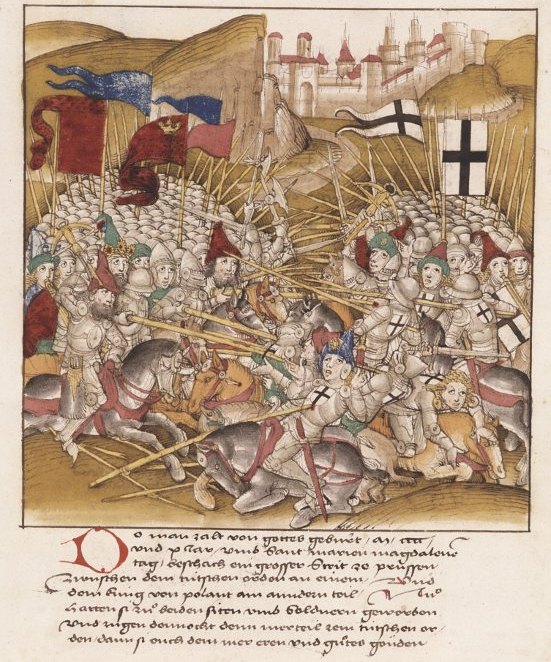 The concept of chivalry comes from the knights of the high middle ages. While one need not be a knight in order to act chivalrously, I will use a knight for an example in discussing this quality. In this illustration, our knight’s behavior also shows honor, loyalty, courtesy (the behavior expected of courtiers), and noblesse oblige (the obligation of the nobility towards their social inferiors).
The concept of chivalry comes from the knights of the high middle ages. While one need not be a knight in order to act chivalrously, I will use a knight for an example in discussing this quality. In this illustration, our knight’s behavior also shows honor, loyalty, courtesy (the behavior expected of courtiers), and noblesse oblige (the obligation of the nobility towards their social inferiors).
Our example knight has pledged his service to a lord. This service requires his obedience to the lord’s commands, but also gives the knight a claim upon his lord for protection. If the lord goes to war, the knight brings his soldiers and follows his lord into battle. The knight is bound to defend his lord even unto death.
At home, perhaps our knight holds an office of responsibility in the service of his lord. He does his best job at whatever he is charged with, and always gives his lord relevant information and honest counsel, but then supports his lord’s ultimate decision, and does his best to see it fulfilled.
The knight is fierce against opponents, never yielding while there is strength in his arm or wit in his mind. His courage against all odds is heroic. He expects the best from his servants, squires, and peers alike, and faithfully exemplifies noble virtue.
.jpg) As fierce as he is toward his enemies, he is gentlemanly, but not patronizing, towards the ladies. Though a stout warrior on the field of battle, he is nevertheless a poet at heart who dances with grace and gives alms to the poor.
As fierce as he is toward his enemies, he is gentlemanly, but not patronizing, towards the ladies. Though a stout warrior on the field of battle, he is nevertheless a poet at heart who dances with grace and gives alms to the poor.
Finally, although our knight leaves his household from time to time on errands for his lord, and may be gone for months or years without his family, his most constant companion is his horse. He would never, but in the greatest need, push his mount beyond a healthy pace, or use his steed for labors below its worthy station. He will care for his horse, so that his horse will care for him.

No comments:
Post a Comment